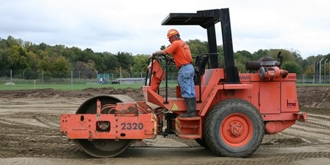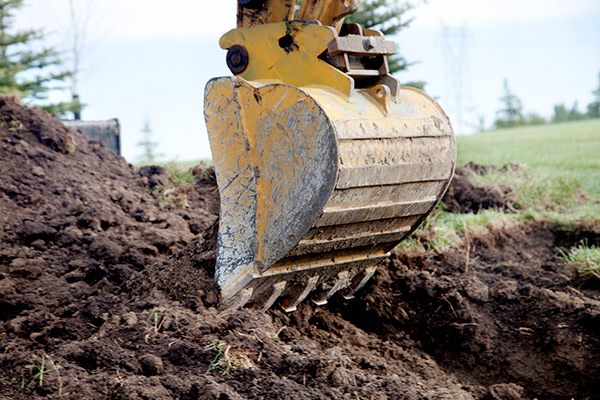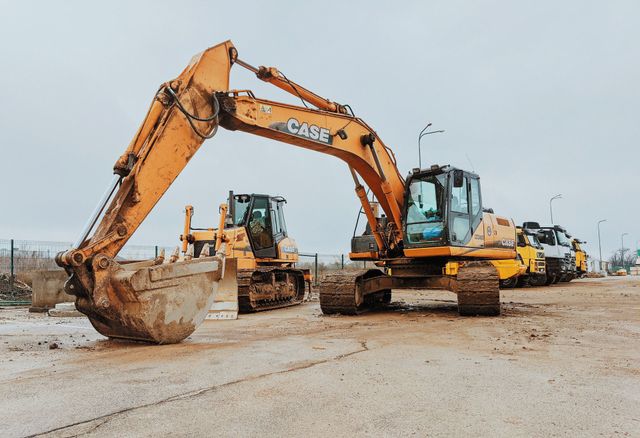Comprehensive Excavation Methods: Understanding the Principles for Success
The mindful preparation, specific execution, and meticulous attention to detail required in excavation jobs require a comprehensive approach that incorporates different fundamental facets. The real proficiency lies not just in understanding these fundamentals yet in flawlessly incorporating them to browse the intricacies of excavation projects with skill.
Recognizing Excavation Task Preparation

The initial stage of any excavation task is the preparation stage, where essential decisions are made that can dramatically affect the result of the project. Comprehending the project timeline, extent, and spending plan restraints is vital for developing a comprehensive excavation plan that guarantees the job's success.
One key facet of excavation project preparation is the advancement of a detailed timeline that outlines the series of turning points, activities, and target dates. This timeline works as a roadmap for the task group, allowing them to track progress and make required adjustments to make certain the job remains on timetable. Additionally, a distinct budget plan that accounts for all expenditures, including tools leasing, labor prices, and products, is essential for staying clear of cost overruns and hold-ups. By carefully taking into consideration all these elements throughout the preparation stage, excavation projects can be executed successfully and successfully, resulting in effective outcomes.
Dirt Analysis and Website Analysis
Conducting detailed soil evaluation and site assessment is a crucial action in the prep work stage of any kind of excavation project. Dirt evaluation includes identifying the structure, framework, and residential or commercial properties of the dirt at the excavation website. This information is important for comprehending the soil's bearing capability, wetness web content, and potential for disintegration, which are key consider establishing the excavation methods and equipment needed for the project.
Site assessment goes beyond soil evaluation and encompasses a wider evaluation of the total website conditions. This examination consists of determining any type of prospective threats, such as underground utilities, environmental concerns, or unstable terrain, that might affect the excavation process. By thoroughly assessing the site, job managers can establish efficient excavation methods that focus on safety and security, performance, and ecological security.
Using innovative technologies like ground-penetrating radar, dirt tasting, and drone surveys can enhance the accuracy and efficiency of soil evaluation and site evaluation. Investing time and sources in these preliminary steps can inevitably save time and prevent pricey hold-ups or problems throughout the excavation process.
Tools Option and Usage
Efficient excavation tasks depend greatly on calculated equipment option and use to make certain optimum performance and productivity. Picking the best devices for the job is essential in making the most of efficiency and lessening downtime. Variables such as the sort of soil, deepness of excavation, and project extent play a significant duty in figuring out the most appropriate equipment for the job available.

Along with selecting the ideal tools, proper use is crucial to task success. Operators should be educated to take care of the tools securely and successfully - septic ohio. Regular maintenance checks and timely repair work help prevent breakdowns and ensure consistent performance throughout the task
Security Steps and Regulations Compliance
In the world of excavation jobs, focusing on precaution and conformity with laws is paramount to guaranteeing a legally sound and safe and secure operational atmosphere. Security actions encompass a series of practices, consisting of carrying out comprehensive site assessments, applying appropriate signage and barriers, and providing ample security training for all personnel entailed in the excavation procedure. Adherence to laws, such as OSHA needs in the United States, makes certain that the excavation job satisfies the necessary requirements to protect employees, bystanders, and the surrounding environment.

Monitoring Progress and Adjusting Strategies
How can predict supervisors efficiently track the development of excavation projects and adjust their methods appropriately to enhance results? Tracking progress is essential for making certain that excavation jobs remain on track and meet deadlines. Task managers can make use of various tools and strategies to track development, such as daily development reports, regular website evaluations, and progressed tracking innovations like drones and general practitioners tracking systems. By constantly keeping an eye on the project's innovation, managers can identify any kind of have a peek at these guys prospective hold-ups or issues beforehand and take positive steps to resolve them.

Conclusion
Finally, grasping the fundamentals of comprehensive excavation techniques is vital for the success of any type of project. By recognizing job planning, evaluating soil and website conditions, selecting proper equipment, adhering to safety and security policies, and keeping an eye on progress, task managers can make sure a reliable and smooth excavation process. Applying these techniques will bring about successful end results and reduce possible dangers or problems throughout the excavation job.
The first phase of any kind of excavation project is the planning stage, where essential decisions are made that can dramatically impact the result of the job. Comprehending the project budget plan, extent, and timeline restrictions is critical for producing a detailed excavation strategy that makes sure the project's success.
Exactly how can forecast supervisors properly track the development of excavation projects and adapt their approaches as necessary to wikipedia reference maximize results? By carefully keeping track of progression and being eager to adapt strategies, job managers can improve the total success of excavation tasks.
By recognizing project planning, examining dirt and website problems, picking appropriate equipment, conforming with safety regulations, and keeping track of development, project managers can make sure a reliable and smooth excavation procedure.
Comments on “Business Lancaster Trenching - Trenching Providers for Organizations in Lancaster”